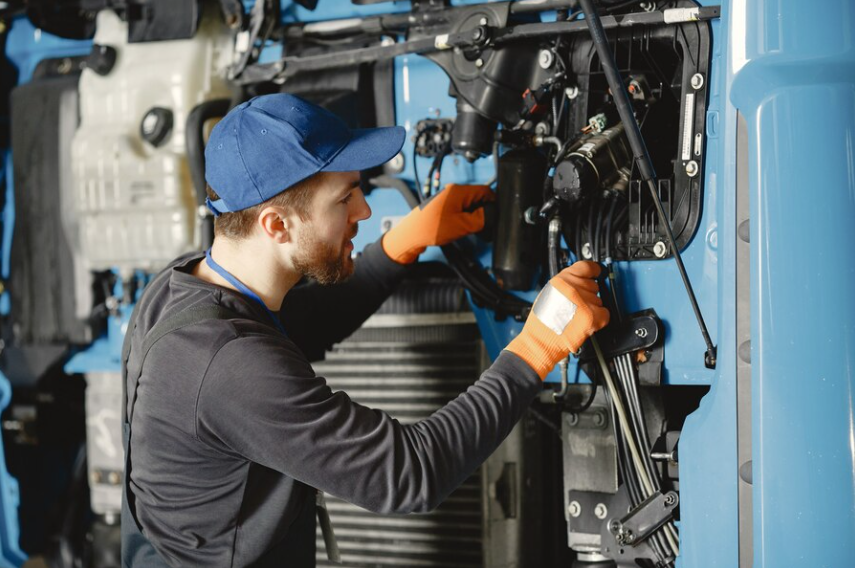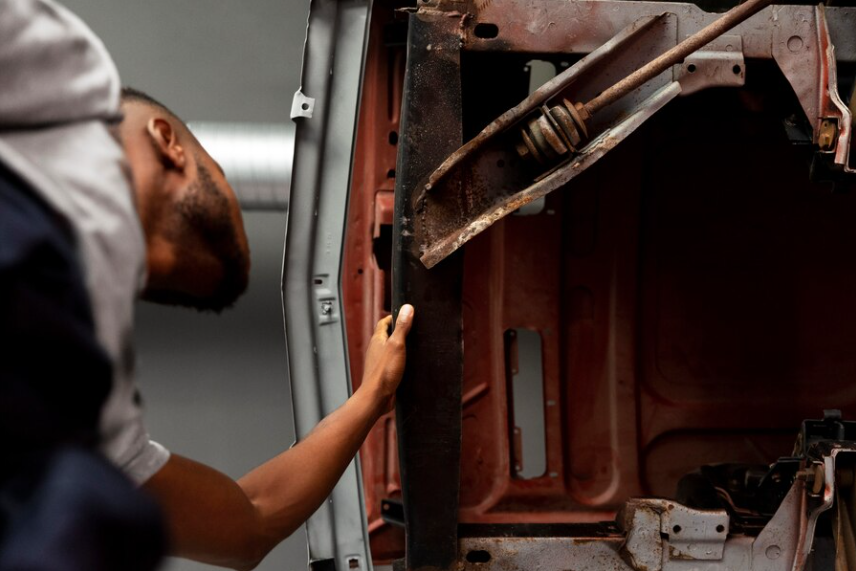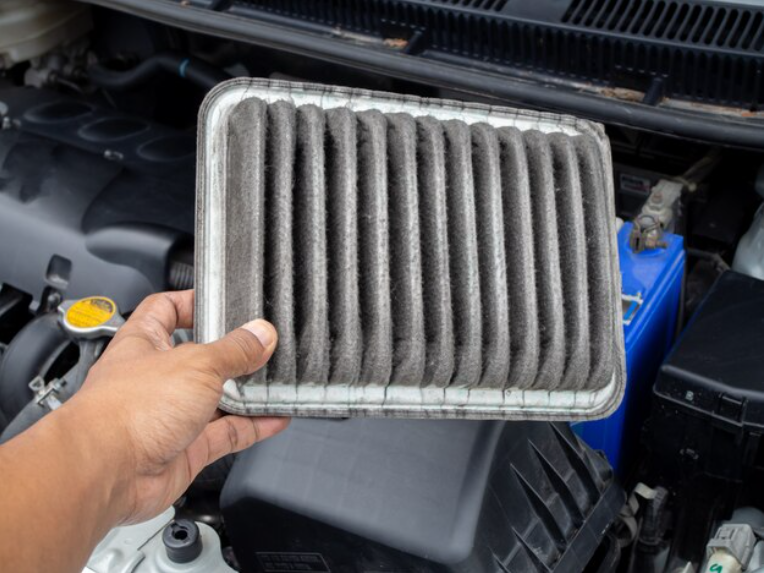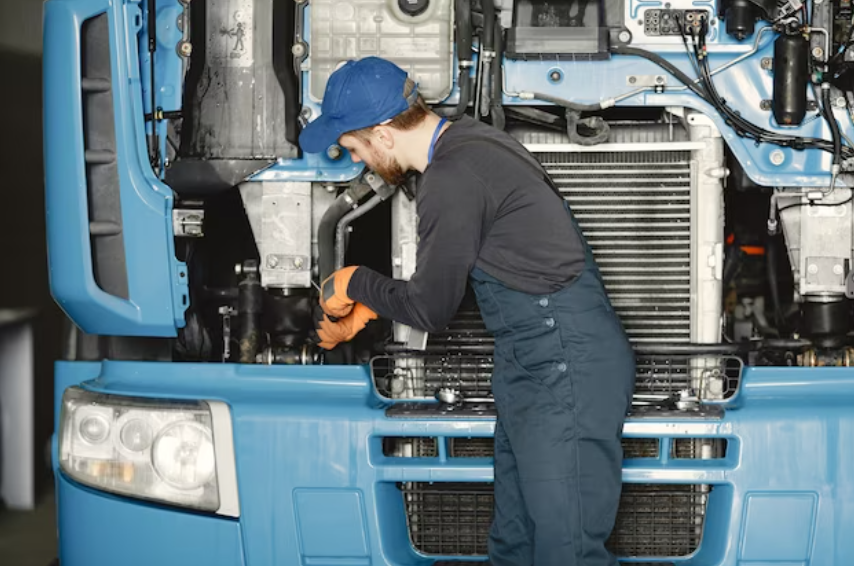Identifying Common Problems
Here are the common problems associated with a bad truck air conditioning system: -
Lack of Cool Air
The absence of cold air from your heavy-duty truck's air conditioning system is a clear indication of a potential problem that demands quick attention. When you crank up the AC, expecting a refreshing blast of chilly air but receive only tepid or lukewarm breezes, it signals an issue within the HVAC system. Common culprits for HVAC systems not cooling include: -
- Depleted refrigerant levels - Hindering the system's ability to produce the desired cooling.
- A malfunctioning AC compressor - Responsible for circulating refrigerant, can result in an inability to generate cool air.
- Clogged condenser - Impeded by debris, fails to extract heat from the refrigerant, leading to the emission of warmer air. That’s why HVAC system repair is essential.

Unpleasant Odors
The presence of foul smells may indicate various underlying issues within the AC system: -
- A Dirty Air Filter - Which, when clogged with dust and debris, releases bad odors into the cabin.
- The Growth Of Mold Or Mildew Within The System - Often stimulated by the dark and damp conditions it provides, contributes to musty and potentially harmful smells. Mold not only causes discomfort but also poses health risks, particularly aggravating respiratory problems.
- Clogged Evaporator Drains - Can also lead to foul odors. These drains are responsible for removing moisture generated during the cooling process. When obstructed, moisture accumulates, creating an environment conducive to odor-producing microorganisms.
Unusual Noises
The emergence of unusual noises from your truck's air conditioning system is a red flag demanding immediate attention. When you activate the AC and hear rattling, banging, or other irregular sounds, it indicates potential issues within the system. These noises can originate from various sources, such as: -
- Leaves or debris obstructing the unit
- More serious problems like a worn-out compressor producing grinding or squealing noises, signaling an impending failure.
- Faulty blower motor producing rattling or whining sounds, indicating improper functionality and the need for replacement.
- A loose belt characterized by squeaking or chirping noises not only disrupts the normal operation of the AC system but can lead to further damage if left unaddressed.
Ignoring these unusual sounds may exacerbate the problem, potentially causing more extensive damage to critical components.

Refrigerant Leaks
One of the key indicators of a malfunctioning air conditioning system in trucks is refrigerant leaks. The compressor plays a crucial role in cooling the refrigerant and ensuring continuous air circulation. However, punctures or holes in hoses and tubes, along with factors like metal corrosion and poor installation, can lead to refrigerant leaks.
Neglecting to check for these leaks in the heavy-duty truck AC system is a common mistake that can have severe consequences. Leaks result in the escape of refrigerant, reducing the system's cooling efficiency and posing potential environmental hazards.
Visible fluid under the vehicle is a telltale sign of refrigerant leaks, emphasizing the importance of regular hose inspections and tightening fittings to prevent leaks. Professionals may also perform a dye test, introducing a small amount of dye into the refrigerant and identifying leaks using a specialized flashlight. If a leak is found, replacement of damaged hoses or components is essential as soon as possible.
Self-Maintenance Tips
Regular Inspection
1. Identify Damaged Components: Periodically inspect hoses and pipes connecting various AC system parts for tears or leaks. Even small holes can escalate into significant issues over time.
2. Visual Inspections: Regularly examine the hoses for visible signs of damage and replace any components showing wear and tear.
Take Care Of Contaminations
- Remove Debris Accumulation: Mold, mildew, and dirt can impact AC efficiency. Regularly check for debris in air filters and evaporator coils and common areas of buildup.
- Regular Power Washing:Use a hose to power wash grills and condenser regularly to maintain optimal airflow and prevent clogs.
- Professional Cleaning: For substantial debris accumulation, seek professional cleaning services at a truck air conditioning repair shop to prevent long-term issues.

Recharge The Refrigerant
- Prevent AC System Faults: Refrigerant leakages contribute to AC malfunctions. So, make sure you regularly recharge the system to maintain an adequate refrigerant supply. Refer to the manufacturer's manual or online resources to identify the correct refrigerant type for your heavy-duty truck. Or get in touch with a professional for a better truck AC diagnosis and installation.
Air Filter Maintenance
- Ensure Efficient Airflow: Clean or replace air filters every six months to maintain quality air circulation within the cabin.
Routine Runs
- Maintain Gas Pressure: Run the AC system for about 10 minutes weekly, even during colder months, to sustain proper gas pressure and compressor functionality.
- Prevent Odors: Use the defrost function for 5 to 10 minutes weekly to remove moisture and prevent mildew buildup, ensuring clean and odor-free air.
While self-maintenance is necessary for your truck's air conditioning system, it is also important to consult certified technicians to identify underlying issues that may not be apparent during routine checks. Their specialized knowledge ensures precision in addressing complex system components, preventing potential breakdowns. Timely professional intervention guarantees the efficient operation of the AC system, promoting driver comfort and minimizing the risk of issues on the road.
Conclusion
Maintaining a well-functioning air conditioning system for heavy-duty trucks is vital for driver comfort, safety, and efficiency. However, while self-maintenance is valuable, consulting certified technicians is crucial to identify hidden problems and prevent breakdowns. So, conduct inspections, initiate quick repairs, and opt for professional servicing like Advanced Truck Repair whenever needed.
From HVAC system repairs to Dot Truck Inspections, we cover all your truck repair issues.























